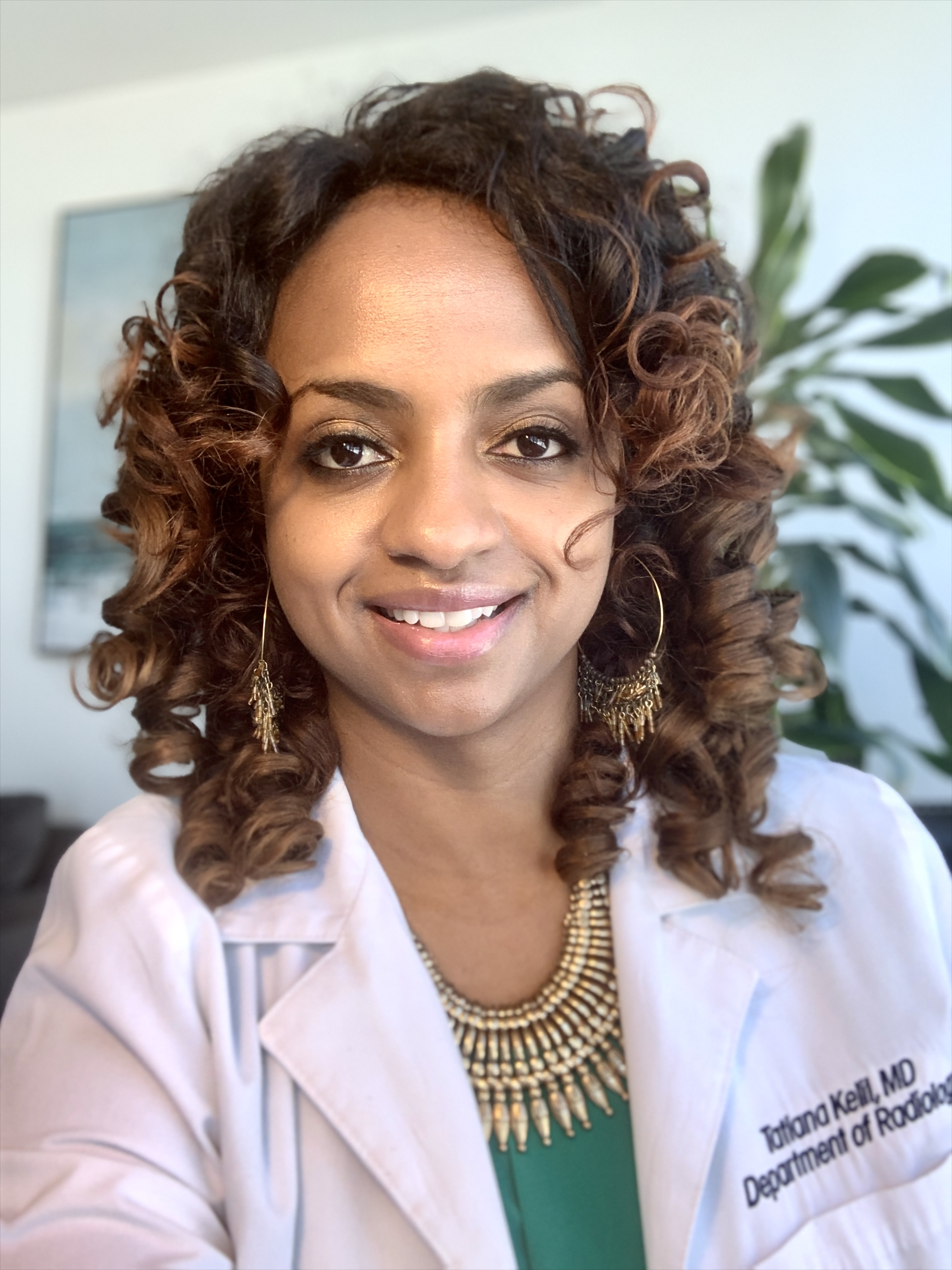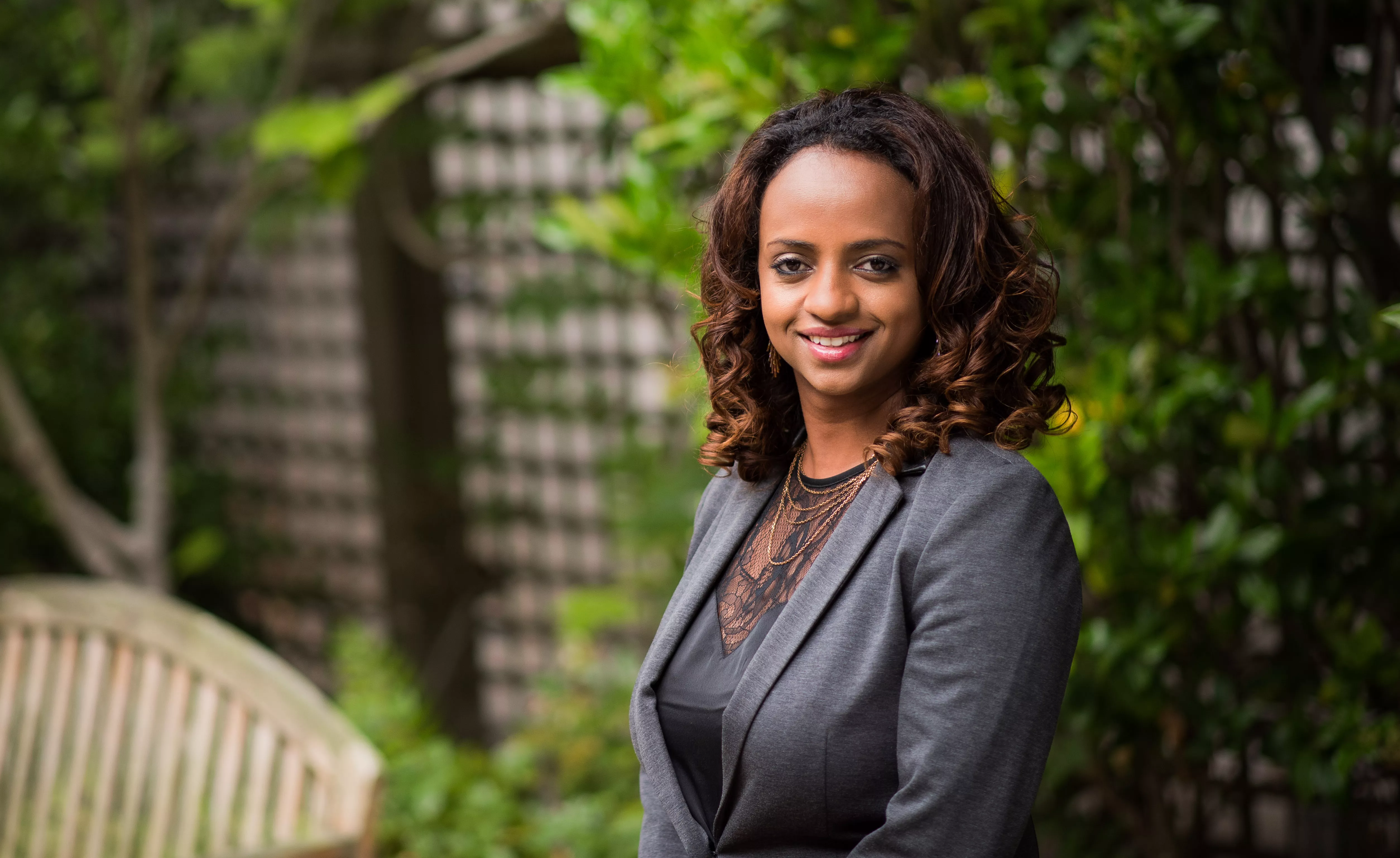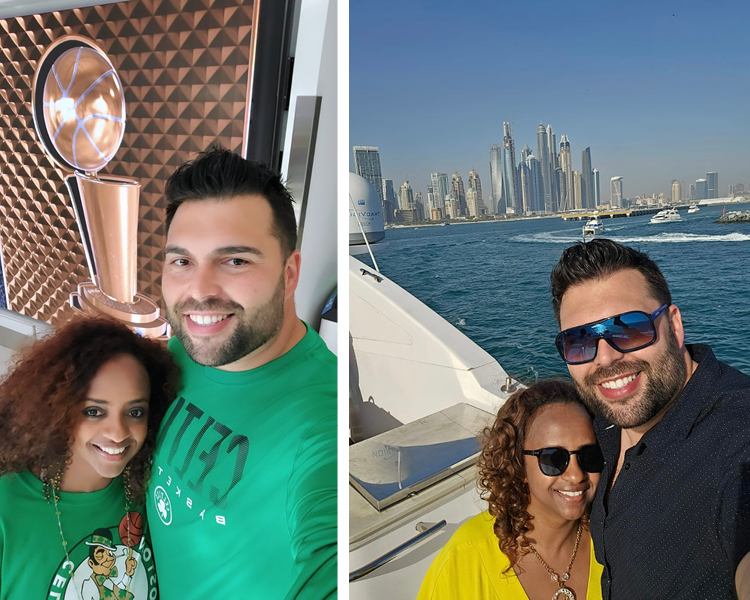
Tatiana Kelil, MD is a clinician attuned to both patient needs and the satisfaction of a good visual puzzle, a perfect combination for her specialty of breast imaging. Her prior experience as a nurse taught her adaptability and resourcefulness as a practitioner and researcher. A student of Toltec philosophy, she now contributes her experience and compassion through imaging projects in the Bay Area, Tanzania, and Ethiopia. Dr. Kelil came to UCSF for her fellowship in women’s imaging and joined the faculty in 2018. She is co-director of the UCSF Center for Advanced 3D Technologies where she provides imaging expertise to the creation of physical medical models.
Kelil received her undergraduate degree in nursing and worked for two formative years at Kaiser Santa Clara before applying to medical school. Reflecting on her time as a nurse she says, “That experience made me the type of physician I am today. I think it gives me a unique perspective. As a nurse, because you spend most of your time with patients and their families, taking care of their most intimate physical and emotional needs, you learn to attune to those patient needs. I became a better listener because of my time as a nurse.”
Radiology captured Tatiana’s interests early in her medical school journey. As she describes it, “I'm a visual person and I've always been interested in recognizing patterns and solving problems. Radiology is the ideal field. I get to look at images, recognize patterns, and solve a patient's diagnosis.” During her time at Chicago Medical School, Kelil wondered how she would reconcile the cerebral appeal of radiology with her desire to continue close interactions with patients: “Once I decided to go into radiology, I found myself missing the constant patient interaction. So, when I chose a subspecialty, I made sure I chose a field that would still allow me to be in close contact with patients. Breast imaging was the best of all worlds. I get to be with patients during image-guided procedures and explain to patients the imaging process or finding.”
“It all comes back to treating everyone with respect and kindness."
Breast imaging proved to be a perfect fit, in part because it replicated some of nursing’s intimate care. Kelil describes the emotional satisfaction of practicing breast imaging: “the reinforcement you receive is immediate. If we detect a suspicious abnormality on imaging, we perform a procedure and within a few days the results are back. I receive gratification knowing I can get patients early and more effective treatment or relieve their anxiety when results return favorable.” To enhance patient care, Kelil co-directs a team at the UCSF Center for Advanced 3D Technologies, which converts two-dimensional imaging data from CT scans or MRIs into 3D-printed physical models. These models are used for surgical planning and patient education. She has advanced the applications of 3D printing in breast care management to allow for patient-specific presurgical planning and more customized surgical intraoperative surgical guides for both breast conservation and breast reconstruction surgeries.

Kelil’s research explores machine learning tools to create personalized risk assessment models for predicting which patients are eventually going to develop breast cancer. Existing risk assessment models can work on a large population base but are not as useful for an individual patient, nor do they incorporate much imaging information. By adding breast MRI data and biomarkers, Kelil in collaboration with data scientists at the Center for Intelligent Imaging (ci2), is working on models that can potentially predict which patients are going to develop breast cancer, enabling early interventions and preventive measures.
Reflecting on her career path, Kelil describes the influence of Dr. Jack Meyer whom she knew during her residency at Brigham and Women's Hospital: “He was only there briefly when I was a resident, but even during that short period, he had a huge impact on the kind of physician I ended up being. He was one of the pioneers of breast imaging, and for all the accomplishments he had, he was very humble, kind, and approachable. Always dedicated to teaching. I like to think I have taken some of those qualities from him.” Kelil is involved with the UC’s Global Cancer Program through which she joined colleagues from the Department of Pathology on a mission to Tanzania to teach radiology and pathology residents how to do image-guided breast biopsies. Dr. Kelil is also the associate program manager for the RAD-AID International team that established the first breast imaging training program in Ethiopia. She noted that “In Ethiopia, breast cancer is one of the leading causes of death, but the country only has about 200 radiologists and majority of whom had no formal training in breast imaging. Now, those that completed the training are taking over the program and subsequently teaching their own residents. It is wonderful to see and I enjoy having this kind of meaningful impact.”

Outside of work, Kelil recently began learning the piano. She loves traveling with her partner, having traveled to more than 20 countries. Their last trip was to Dubai, with an upcoming plan for the South of France. Married to a die-hard Boston sports fan, Kelil has become an expert at pretending to like the Celtics and the Patriots.
Kelil notes that she was very influenced by the book The Four Agreements by Don Miguel Ruiz, an effort to apply an ancient Toltec philosophical system in the context of modern self-help. The central tenets are to be impeccable with your word, don’t take anything personally, don’t make assumptions, and always try your best. In this vein, Kelil observes that “It all comes back to treating everyone with respect and kindness. When I was a nurse, there were times when I wished some physicians had treated me differently. As a physician now, I’m very cognizant of how I interact with other members of the team. There’s no job that is more or less important than others, we just all have different responsibilities.”